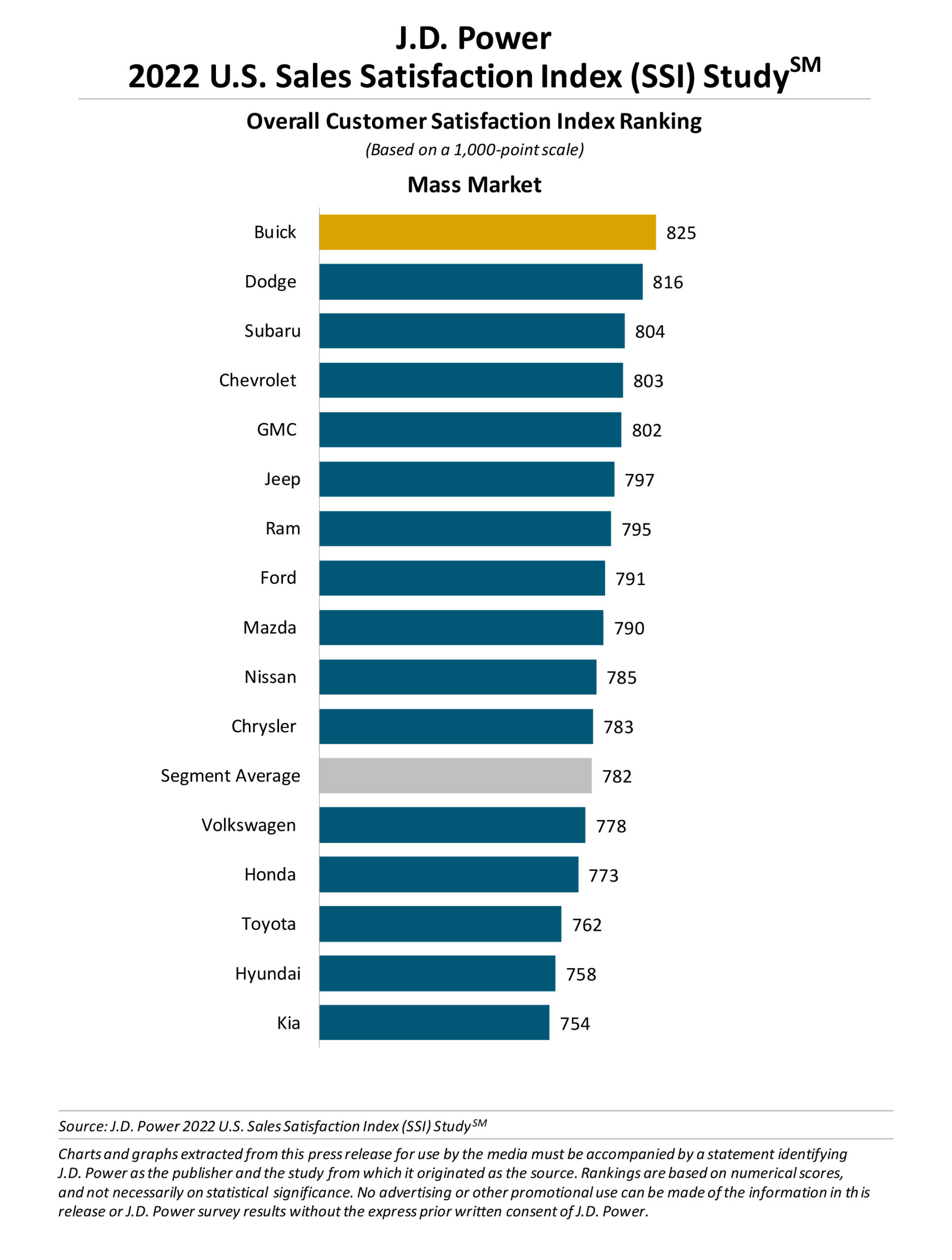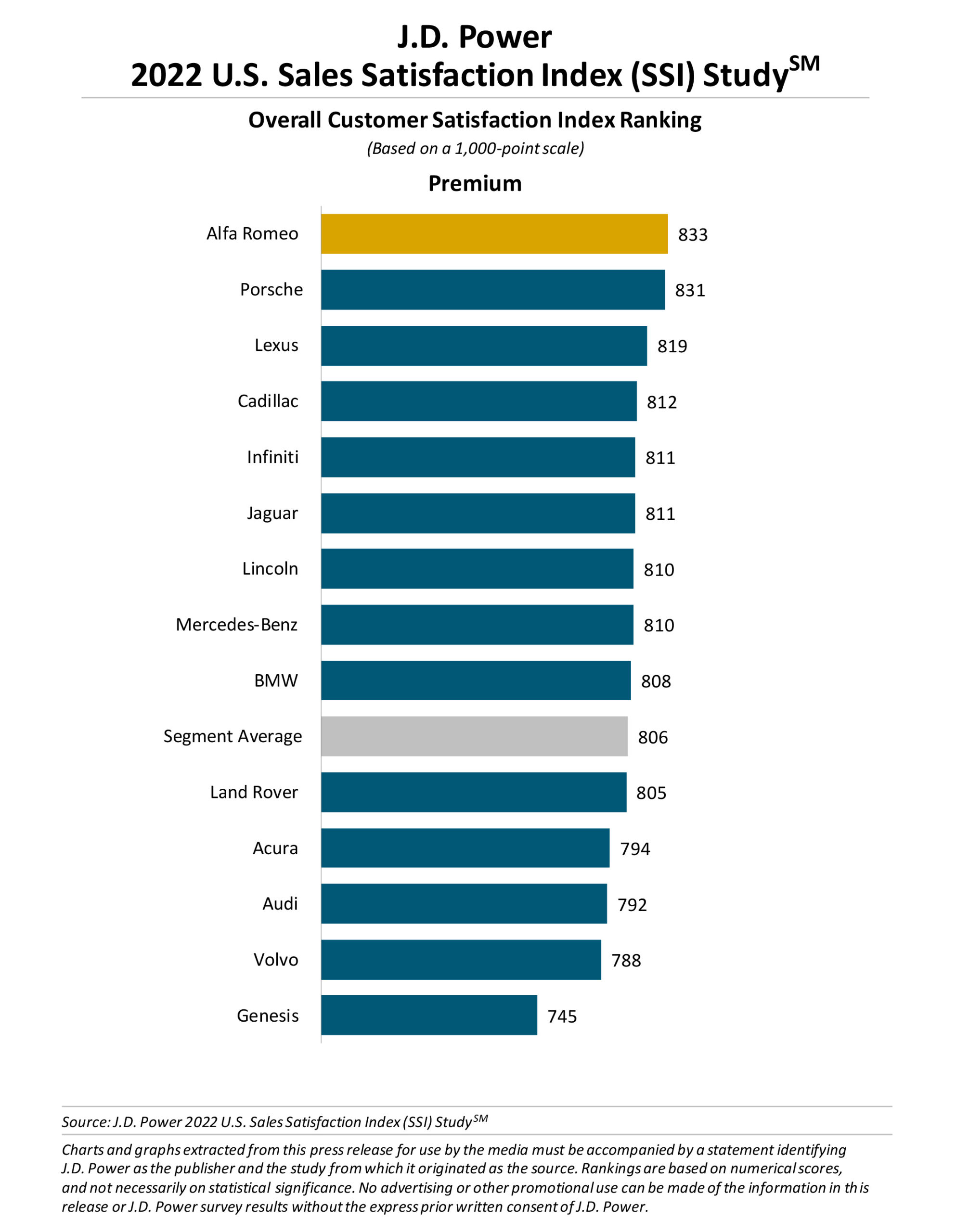In case you’ve been living under a rock for some time, auto dealers across the nation have been marking up cars, trucks, and SUVs like never before. Now, a new study from J.D. Power confirms that those markups play a huge role in customer satisfaction. For the first time in over a decade, that average has decreased as dealership inventory falls and prices continue to surge.
According to its 2022 Sales Satisfaction Index Study, overall sales satisfaction has dipped to 786 (on a 1,000-point scale) from 789 in 2021. That change comes down to two related factors. First, inventories across the country are still lower than customers would like. In turn, dealers are buoying their numbers by charging over the Manufacturer’s Suggested Retail Price (MSRP).
Chris Sutton, vice president of automotive retail at J.D. Power spells out the issue. “When dealers charge more than MSRP, particularly with long-term loyal customers, they risk a potential long-term negative effect on customer advocacy and service business.” The data shows that it’s not just high-end models that are trading hands for big money though.
Read: Dealer Defies Ford, Adds 94 Percent Mark Up On Bronco Raptor Priced At $154,005
The practice actually affected mass market customers more than it did premium vehicle buyers. The study says that 25 percent of those who bought mass-market vehicles paid over MSRP compared to just 19 percent of those who bought premium vehicles. Unsurprisingly, pricing has a big effect on overall satisfaction.
Buyers who paid sticker price (MSRP) scored their satisfaction at 850 points on average. Those who paid above it saw an average drop of 93 points to just 757. The total score is calculated through six main factors.
Those include the delivery process (26%); dealer personnel (24%); working out the deal (19%); paperwork completion (18%); dealership facility (10%); and dealership website (4%). It’s worth noting that some automakers like Ford and General Motors have publicly decried big markups on their products.
The Best And Worst Performers
In terms for mass market brands, Buick ranked highest in sales satisfaction with a score of 825, followed by Dodge (816) and Subaru (804) while on the other end, Toyota (762), Hyundai (758) and Kia (754). came in last. The segment average was 782.
Alfa Romeo ranked first in sales satisfaction among premium brands with a score of 833, with Porsche (831) coming in second and Lexus (819) third. Genesis was by far the worst performer here with a score of 745 followed by Volvo (788) and Audi (792). The segment average here was 806.
At the end of the day, laws make it impossible for them to dictate pricing at the dealership level though. That’s one reason why other automakers like Lucid, Tesla, and Rivian have chosen a direct-to-consumer sales model. Cutting out the dealer saves the customer from the disappointment of walking into a dealer expecting to pay one thing only to be told that the middleman wants a bigger cut.






